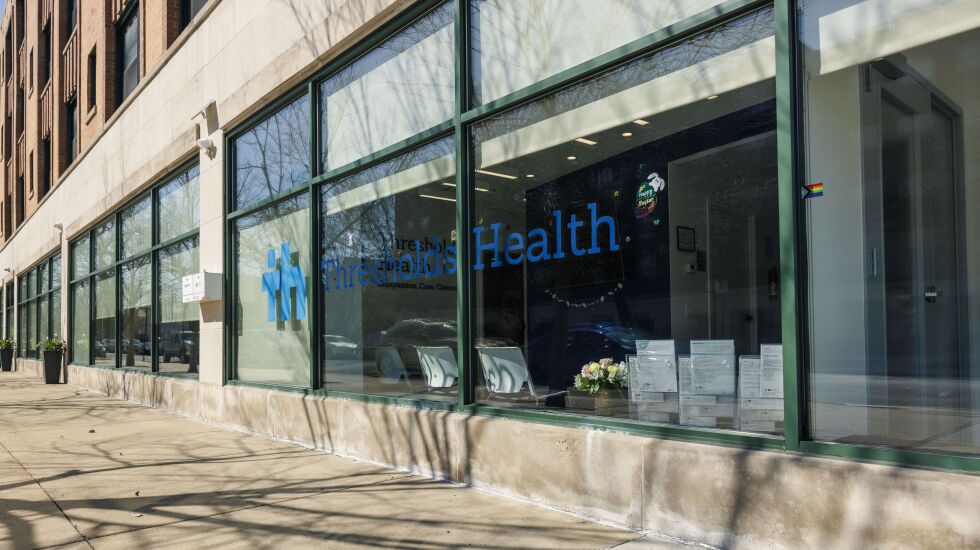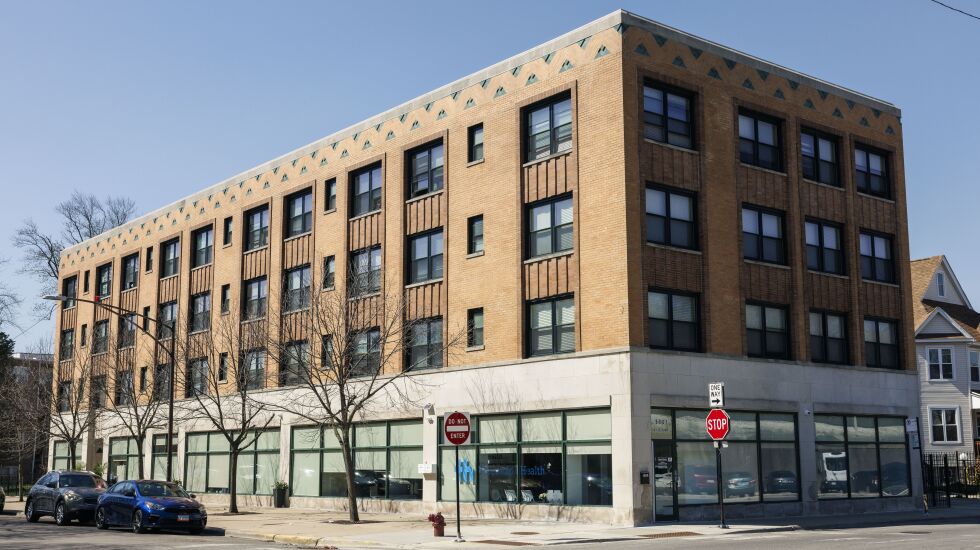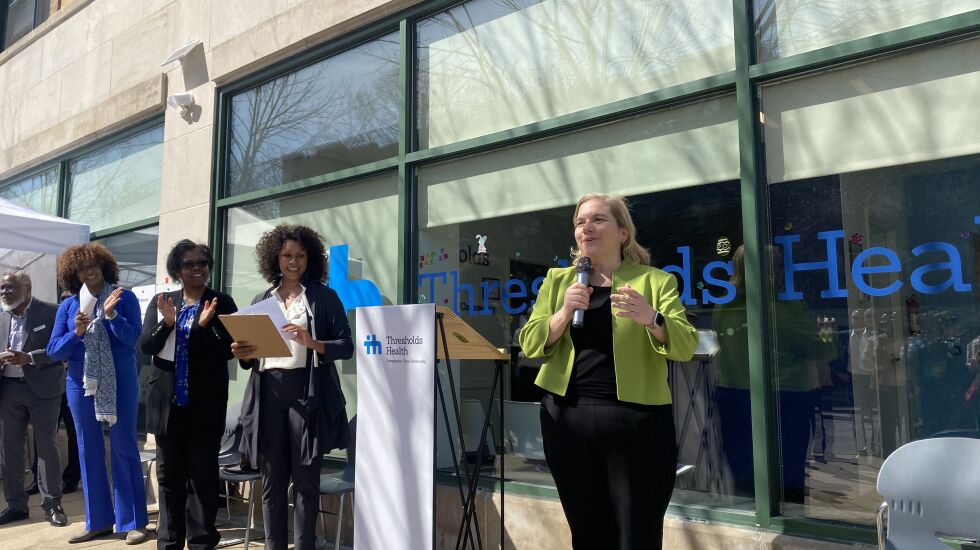
When Jermaine Harris got sick growing up, there was no walk to see a familiar family doctor in Austin. Instead, the family had to take the CTA well beyond the neighborhood, to Rush Medical Center.
“We have to seek out these things outside our community,” Harris said. “Growing up on the West Side, it was always on us to leave.”
That’s why he returned to the neighborhood to celebrate the debut of a primary care clinic, which he helped open, and which promises to cut the gap in care for West Siders.
“Here’s a healthcare site you can walk to,” Harris said, standing outside the clinic, at Corcoran Place and Menard Avenue, for its grand opening earlier this. month. “That’s the way of the future. … Smaller community spaces are how we’re going to transform communities.”

Harris is a founding board member of the clinic, called Thresholds Health, and was among a crowd of staff, local residents and city officials, including Commissioner Dr. Allison Arwady of Chicago’s Department of Public Health, celebrating on April 11.
The clinic, which opened to the general public in mid-March, is the first from Thresholds Health. That’s the healthcare arm of the Thresholds housing and social services agency that has helped Chicagoans struggling with homelessness and substance abuse since the late 1970s.
The 1,900-square-foot clinic is on the ground floor of the agency’s Austin apartment building. Residents of the building have been able to get care there since September.
Leaders decided to open it to the general public because of the wider need in the community. They expect to see 200 patients per week at the clinic, open weekdays, 9 a.m. to 7 p.m., no appointment necessary.
They plan to treat patients regardless of their insurance status, said CEO Ed Murphy, adding that Thresholds is applying to be designated as a “look-alike” federally qualified health center, which would help them get federal funds to pay for that care.
Either way, they won’t turn anyone away.
“We’re going to see people whether they can have insurance or not,” said Harris, the former CEO of a health center Downstate. “In this community, primary care is needed.”
The advent of federally-qualified health centers, and the look-alikes, has transformed care for uninsured or underinsured people nationwide.
There are about 200 such health centers in Chicago, according to the most recent federal Health Resources and Services Administration data. Most are on the South and West sides. Thresholds’ clinic would be sixth in the 60644 ZIP code, which covers south Austin.
Arwady said she came to the clinic to show her support for Thresholds receiving the designation.
The clinic is the “backbone of how we provide health care for everybody in the city of Chicago,” Arwady said.
“Our primary goal is closing the life expectancy gap,” she added, referring to the notorious lifespan chasm between Black and white Chicagoans.
In Austin, where 76% of residents are Black, the life expectancy is almost 11 years shy of Loop residents, only 7% of whom are Black.
“The biggest reason for that gap is chronic diseases — heart disease, smoking-related illness — and a lot of that has to do with root causes such as healthy food, but it’s really critical people get primary care.”

Opening federally-qualified clinics has greatly improved health outcomes for Chicago neighborhoods in the past, Arwady said, noting how Esperanza Health’s five centers have helped Southwest Siders, especially during the pandemic when the city partnered with Esperanza and other federally-qualified centers to deliver vaccines and care.
For example, after vaccines were rolled out in 2021, the COVID death rate among neighborhoods with Esperanza clinics, such as Little Village and Brighton Park, was significantly lower than in surrounding neighborhoods on the South and West sides, according to the Chicago Health Atlas.
The Austin clinic will help decrease the gap there, but even according to Thresholds’ own studies — which found there are around 40,000 uninsured or underinsured Austin residents — more needs to be done.
The area experiences higher rates of hypertension, lung cancer and diabetes-related hospitalizations, according to the health atlas, and the rate of insured residents is almost five times that of the Near North Side.
Many of those uninsured patients end up at Loretto Hospital.
Camille Lilly, the hospital’s chief external affairs officer and former state representative, was among those at Thresholds for the opening. She said the hospital wanted to show its support for the clinic, as it will lower the number of uninsured patients coming to the hospital for non-emergency services.
Uninsured people often go to the ER instead of private clinics specifically because they don’t have insurance.
“These people don’t have access to healthcare,” Lilly said, “and their lives are turned upside down because of it.”
Michael Loria is a staff reporter at the Chicago Sun-Times via Report for America, a not-for-profit journalism program that aims to bolster the paper’s coverage of communities on the South Side and West Side.







